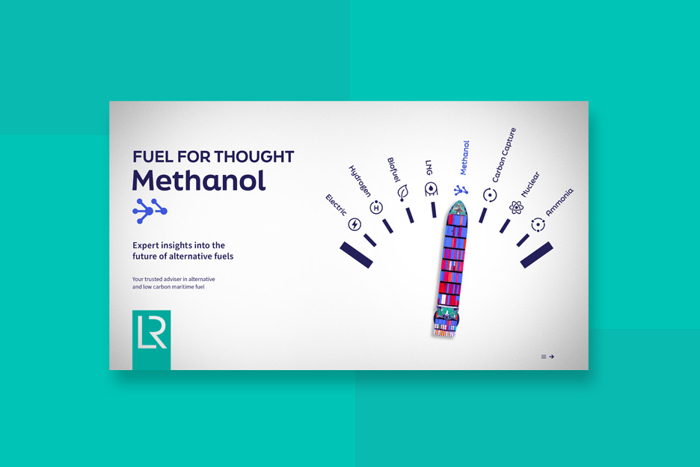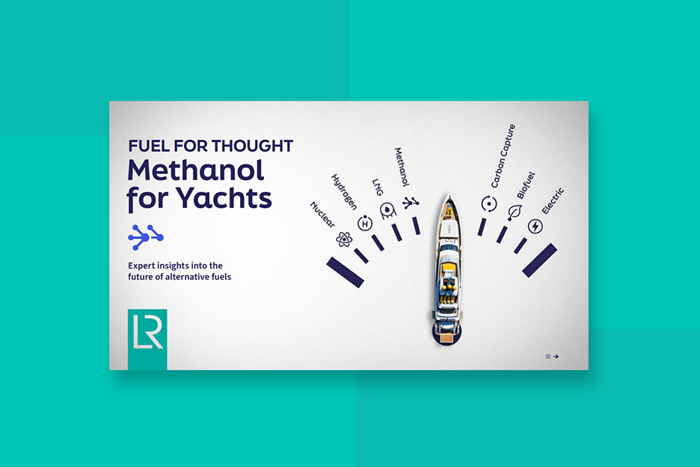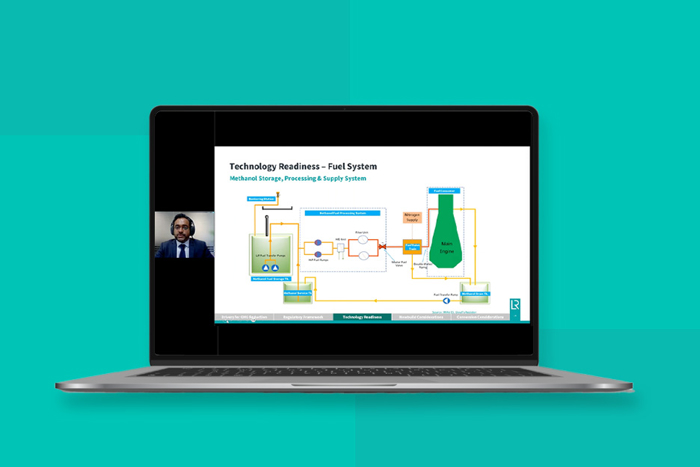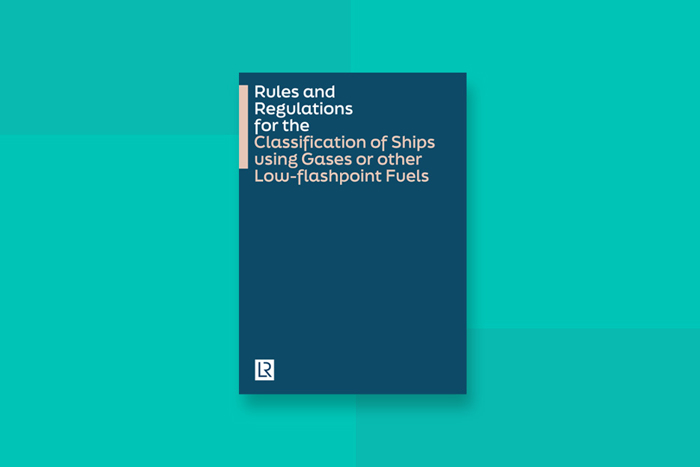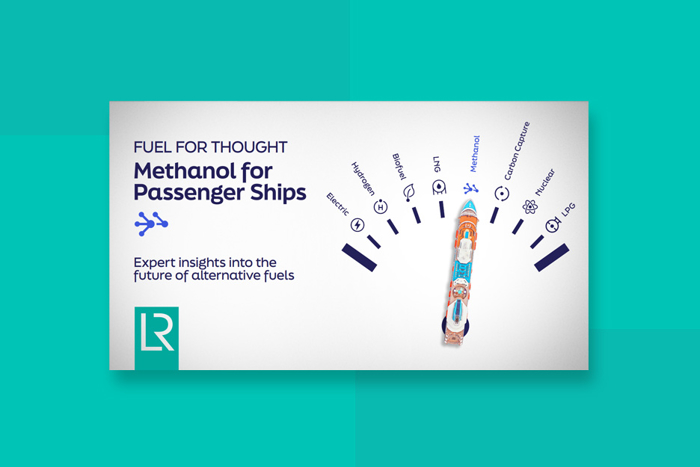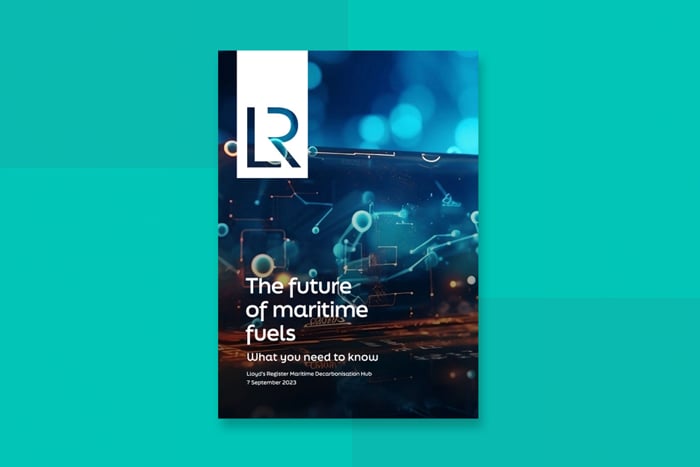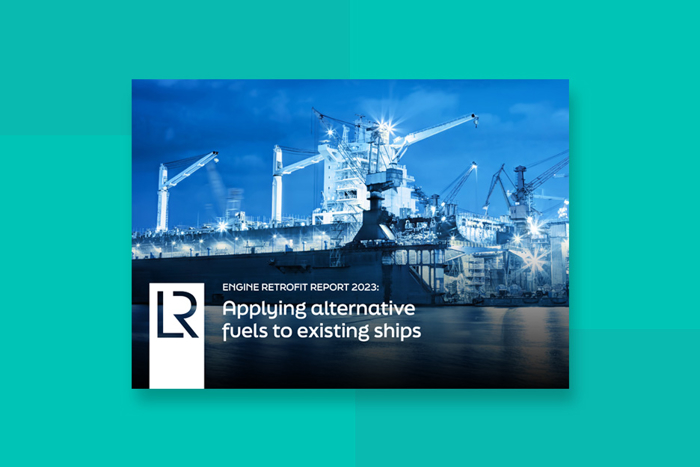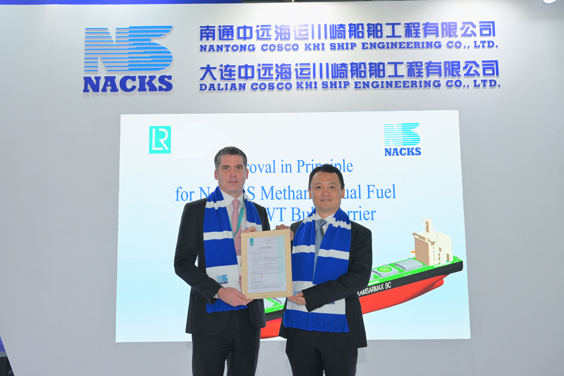Methanol as a marine fuel
The world is constantly in search of new and innovative ways to reduce its dependence on fossil fuels and move towards clean energy sources. One such option that has gained increased attention in recent years is methanol ships.
Methanol as a fuel is a light, versatile, colourless and flammable alcohol. It is a readily available chemical that can be produced from a variety of sources, including natural gas, biomass and carbon dioxide. It is being considered as one of the potential alternative fuels for shipping as the sector continues its journey towards decarbonisation.
Methanol powered ships
In an internal combustion engine, methanol reacts with the oxygen in the air and creates carbon dioxide and water as well as heat/energy. Despite the carbon dioxide emitted, methanol shipping is a viable option to achieve net-zero carbon lifecycle emissions if the methanol is produced using biomass or renewably sourced hydrogen and carbon dioxide.
Methanol as a fuel has several potential benefits, including low emissions, low cost, and excellent energy density. In the “Fuel for thought” alternative fuels series, we explore the current state of methanol as a clean fuel, including its safety considerations, drivers for adoption, production and supply chain, and technology readiness. We will also examine the potential implications of widespread adoption of methanol as a clean fuel and its role in achieving a sustainable future.
Latest content, downloads and tools
Frequently Asked Questions
A methanol engine for ships is an internal combustion engine designed to use methanol as a fuel. Methanol engines may also be dual-fuel engines capable of using marine diesel, marine gasoil, or fuel oils alongside methanol. They require a pilot fuel injection to initiate combustion.
The advantages of methanol as a marine fuel include:
- Low emissions compared to existing marine fuels, particularly in terms of sulphur oxides, particulate matter, and soot.
- Liquid at ambient temperatures and pressures, simplifying storage and handling.
- Biodegradable and miscible in water, reducing environmental impact in the event of a spill.
The disadvantages of methanol include:
- Corrosive nature requiring specific storage and handling arrangements.
- Lower energy density compared to fuel oil, necessitating larger storage volumes.
- Low flashpoint and toxicity, necessitating increased safety systems.
- Uncompetitive price point relative to standard fuel oil.
Problems with methanol as a fuel include its lower energy density, safety concerns due to its low flashpoint, corrosive properties, high toxicity, and the need for pilot fuel injection in methanol engines. Additionally, the current market price of methanol is uncompetitive compared to traditional marine fuels.
Methanol can be used as fuel in ships. It is currently being used in dual-fuel engines designed by major engine makers, and there are ongoing efforts to retrofit existing engines and build new vessels capable of using methanol as a primary fuel.
Methanol is highly miscible in water and biodegradable, reducing its impact in a spill. However, methanol is toxic if ingested, inhaled, or contacts the skin, posing health risks to marine life and humans.
Major issues to consider include:
- Ensuring proper storage and handling due to methanol’s corrosive nature.
- Implementing safety measures to address its low flashpoint and toxicity.
- Adjusting for methanol's lower energy density, which requires larger storage volumes.
- Managing the economic feasibility given its current uncompetitive price compared to traditional fuels.
- Compliance with regulatory frameworks and safety standards for methanol use.
Back to: Fuel for thought hub







